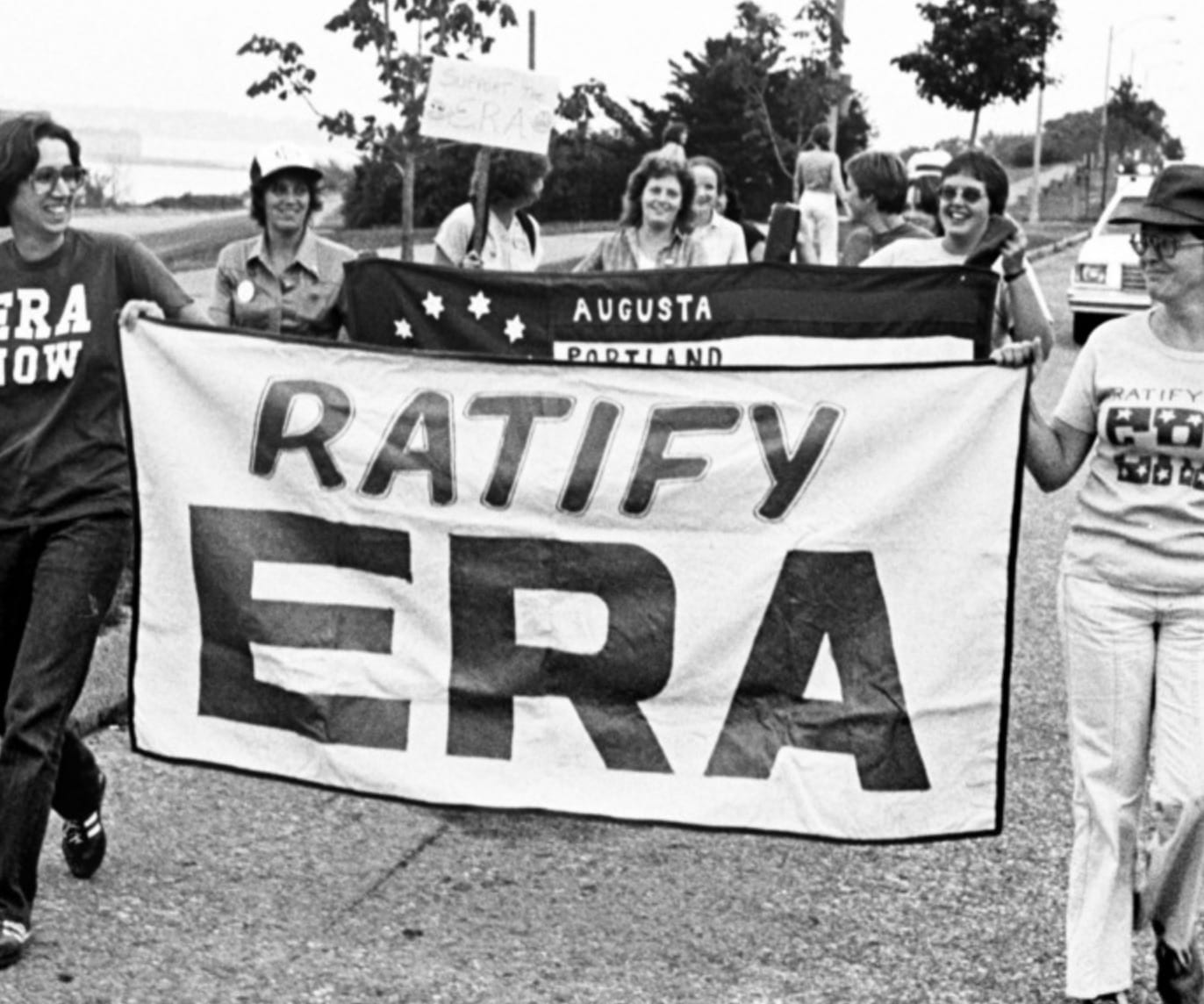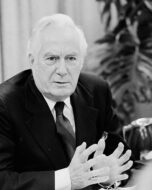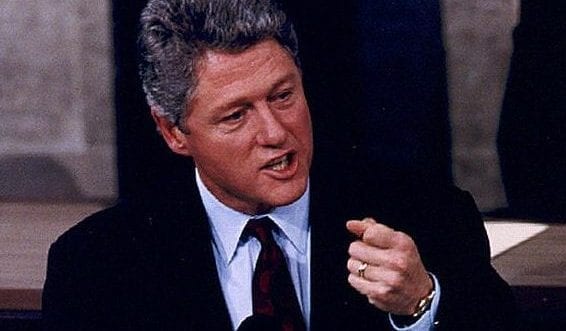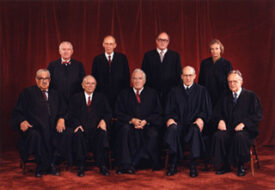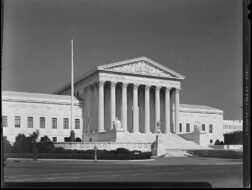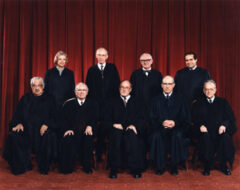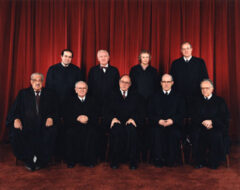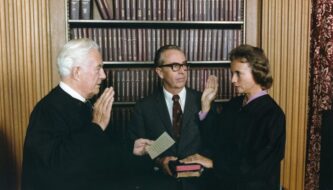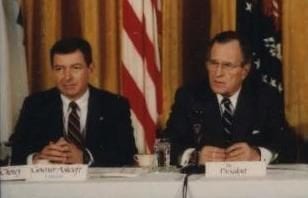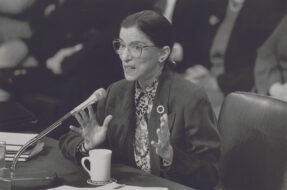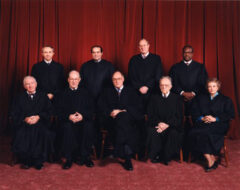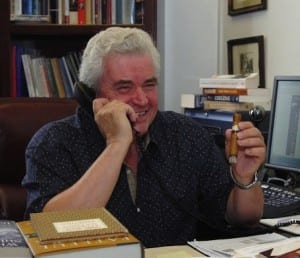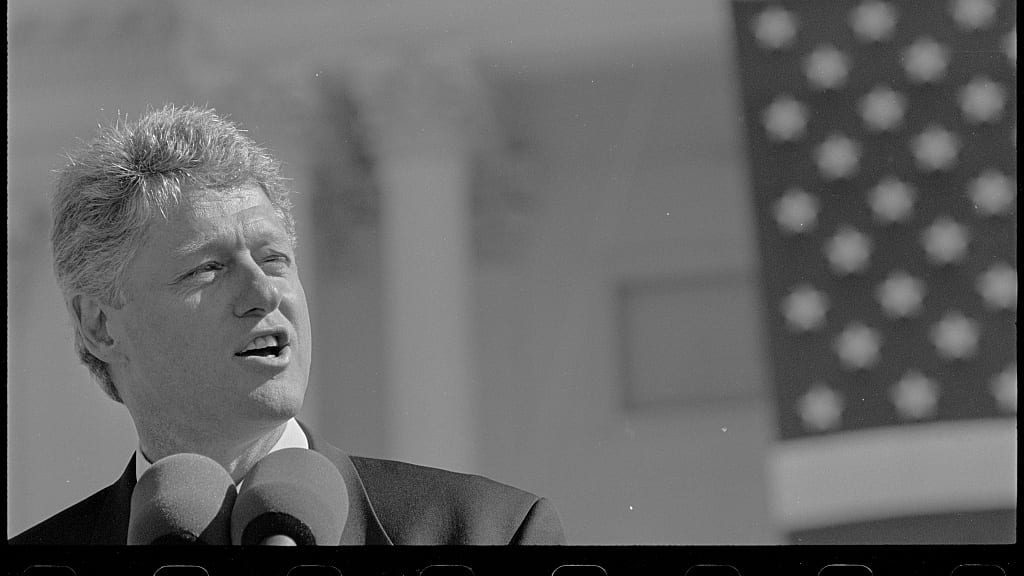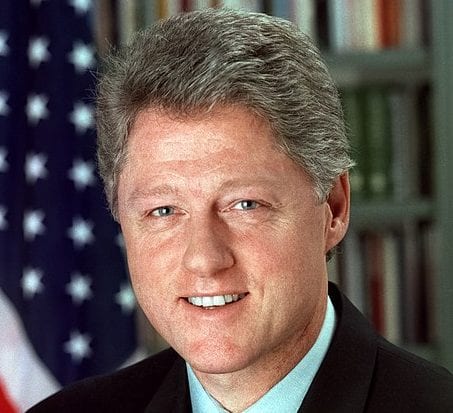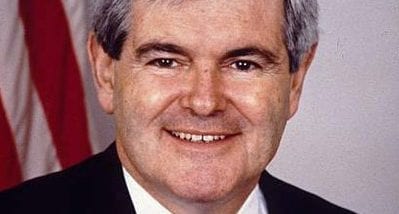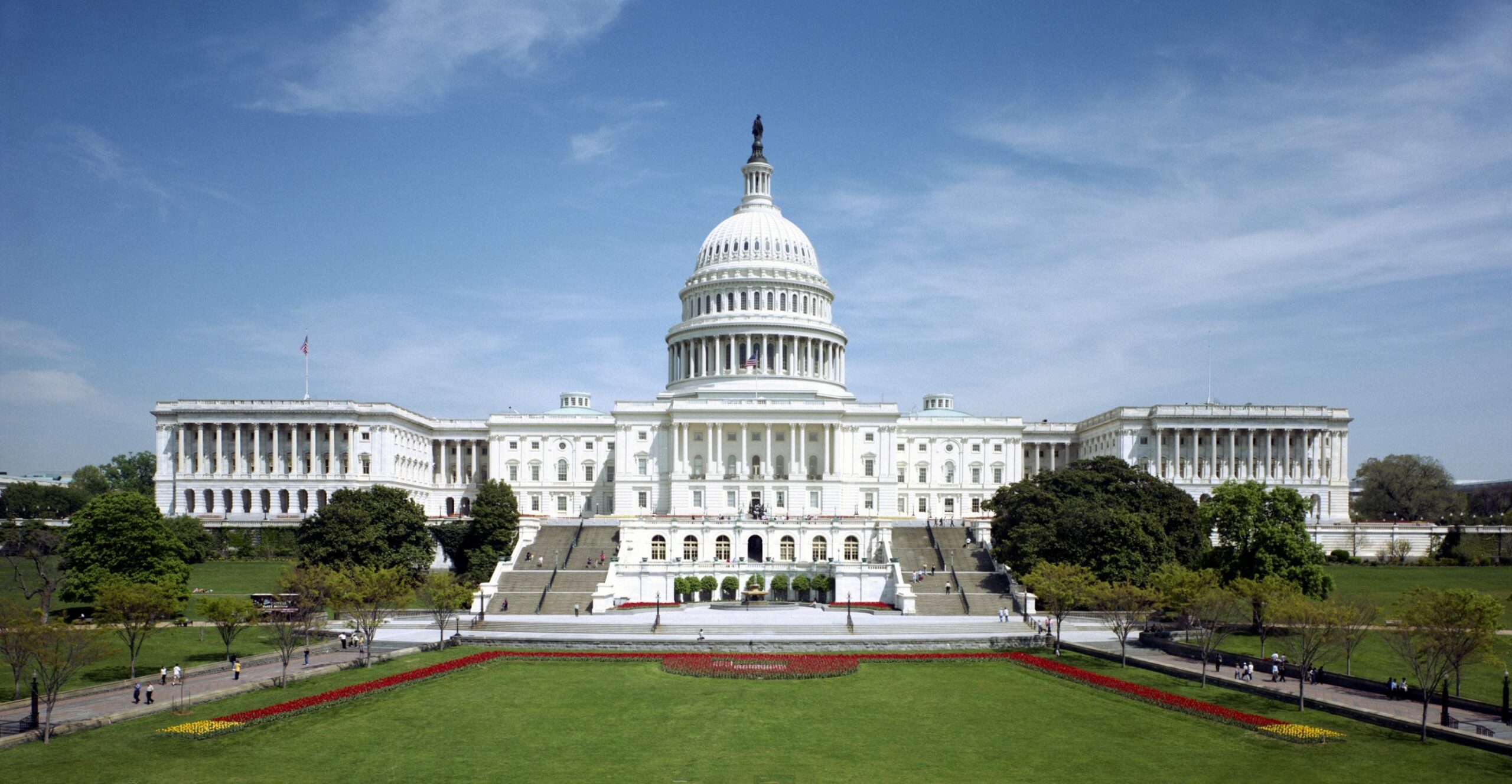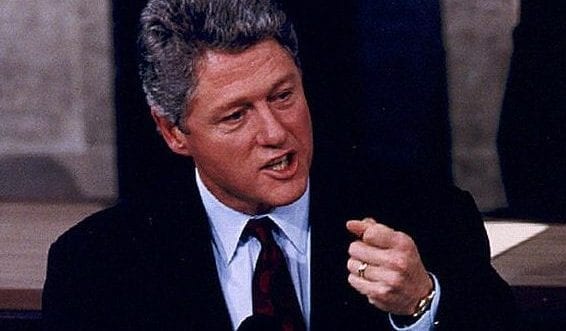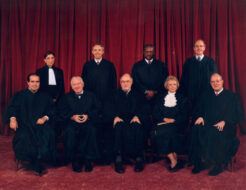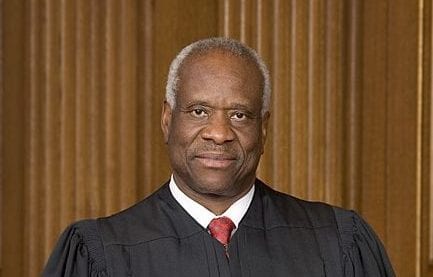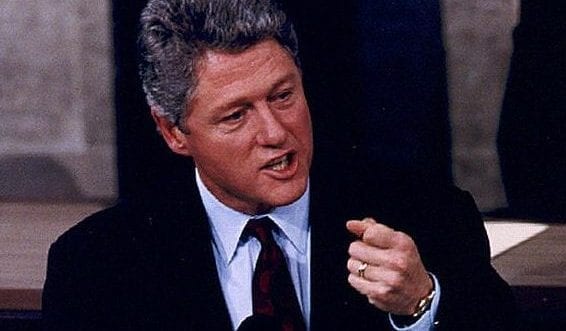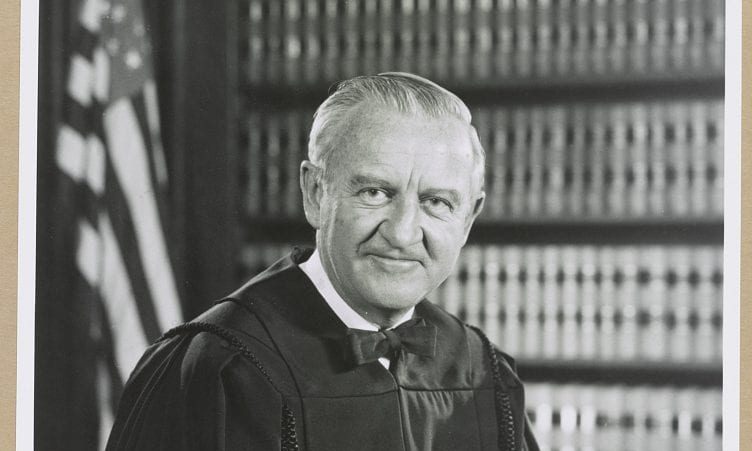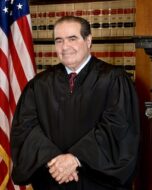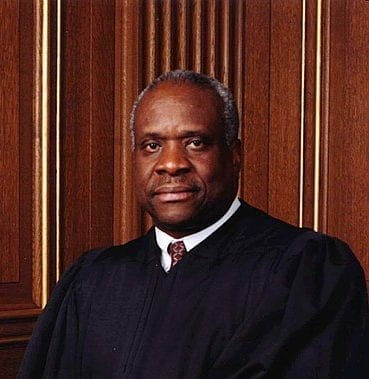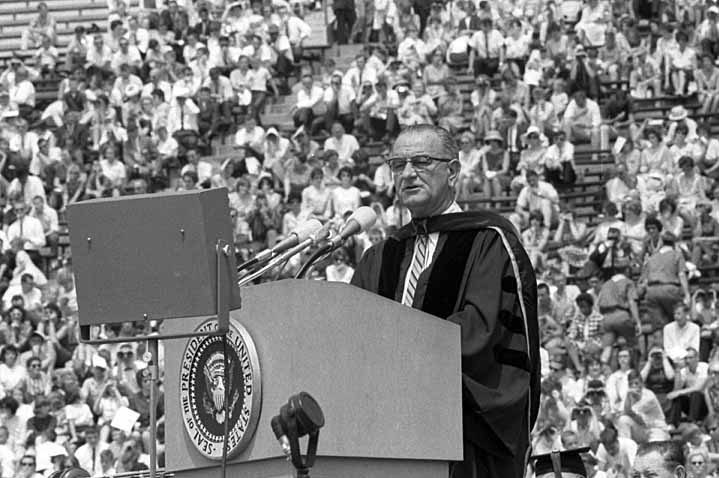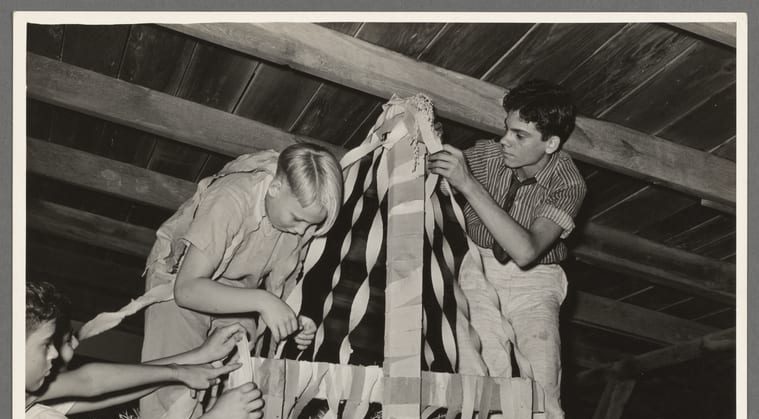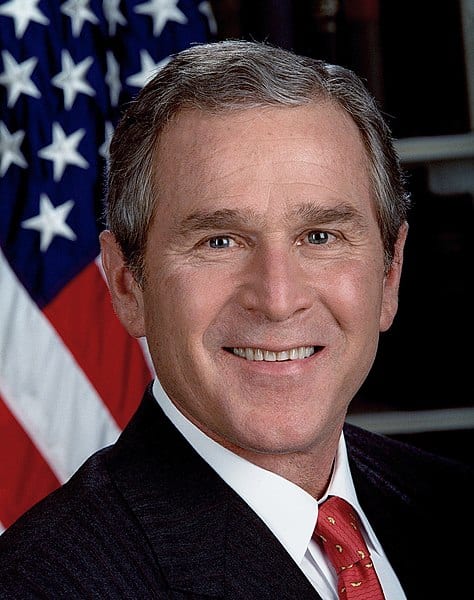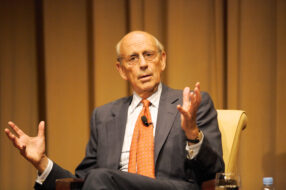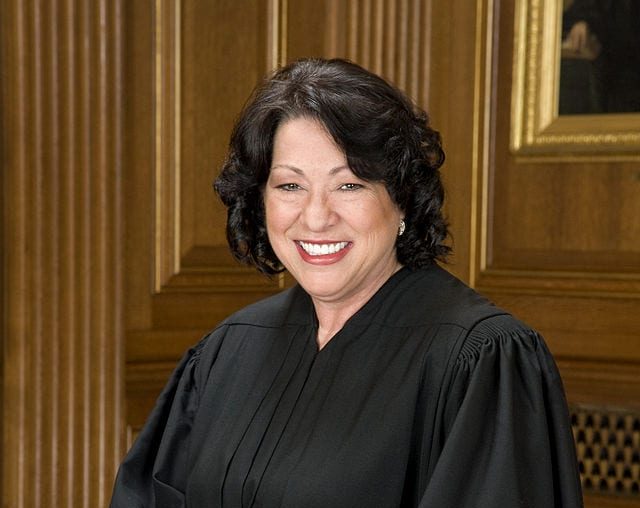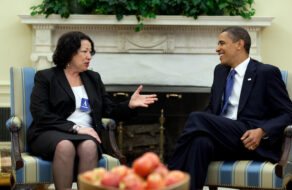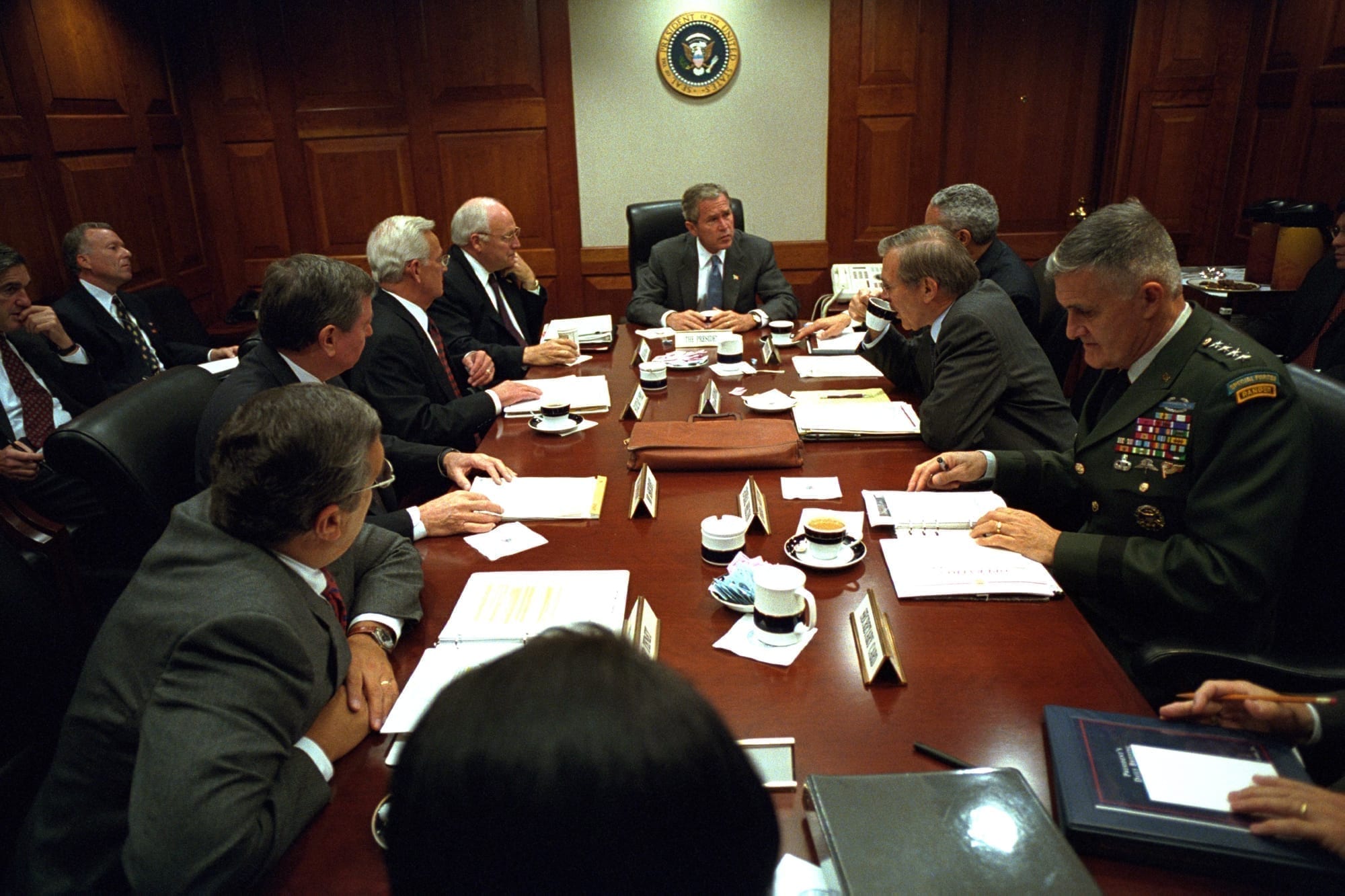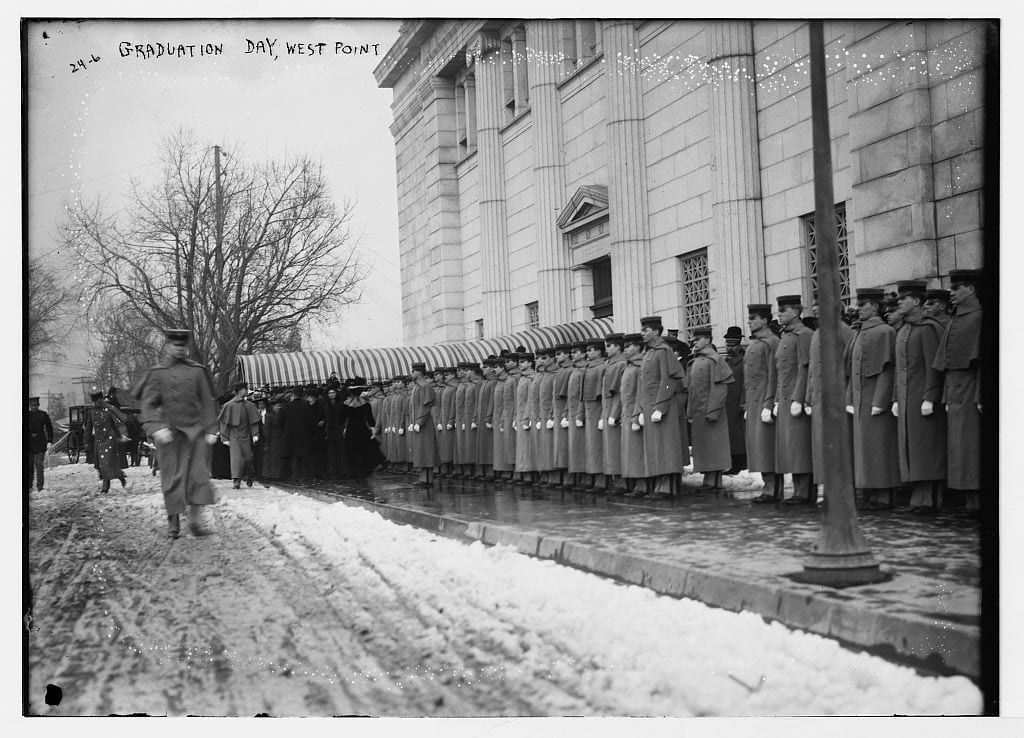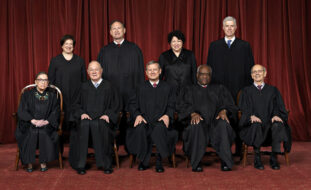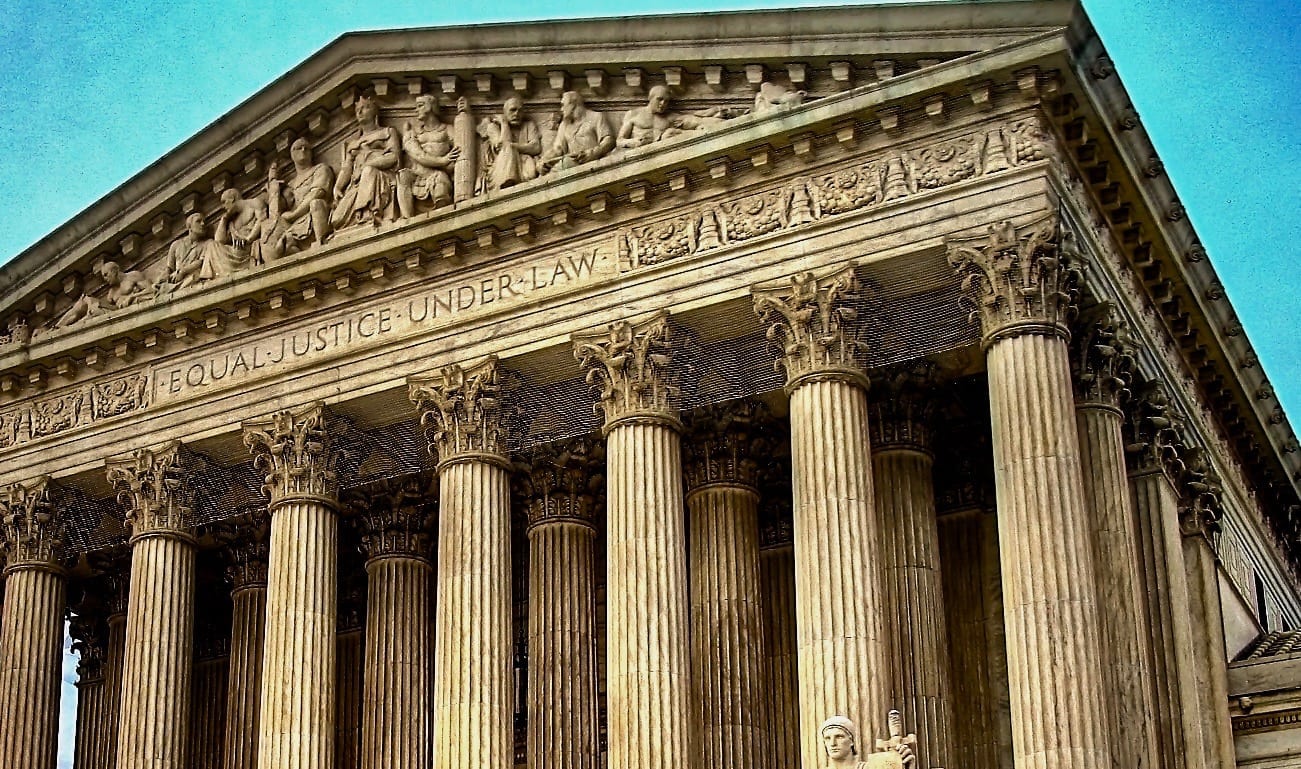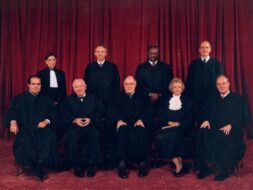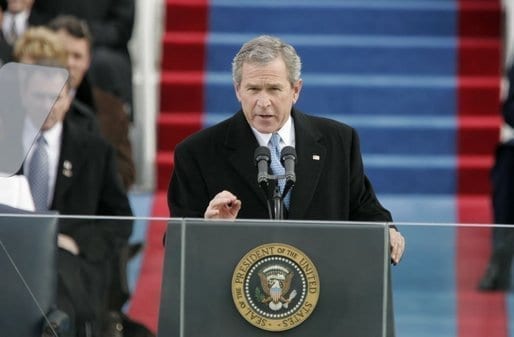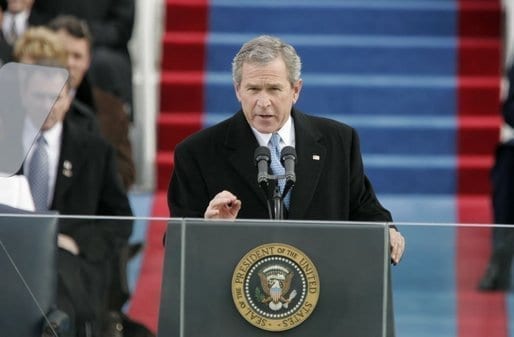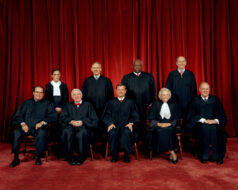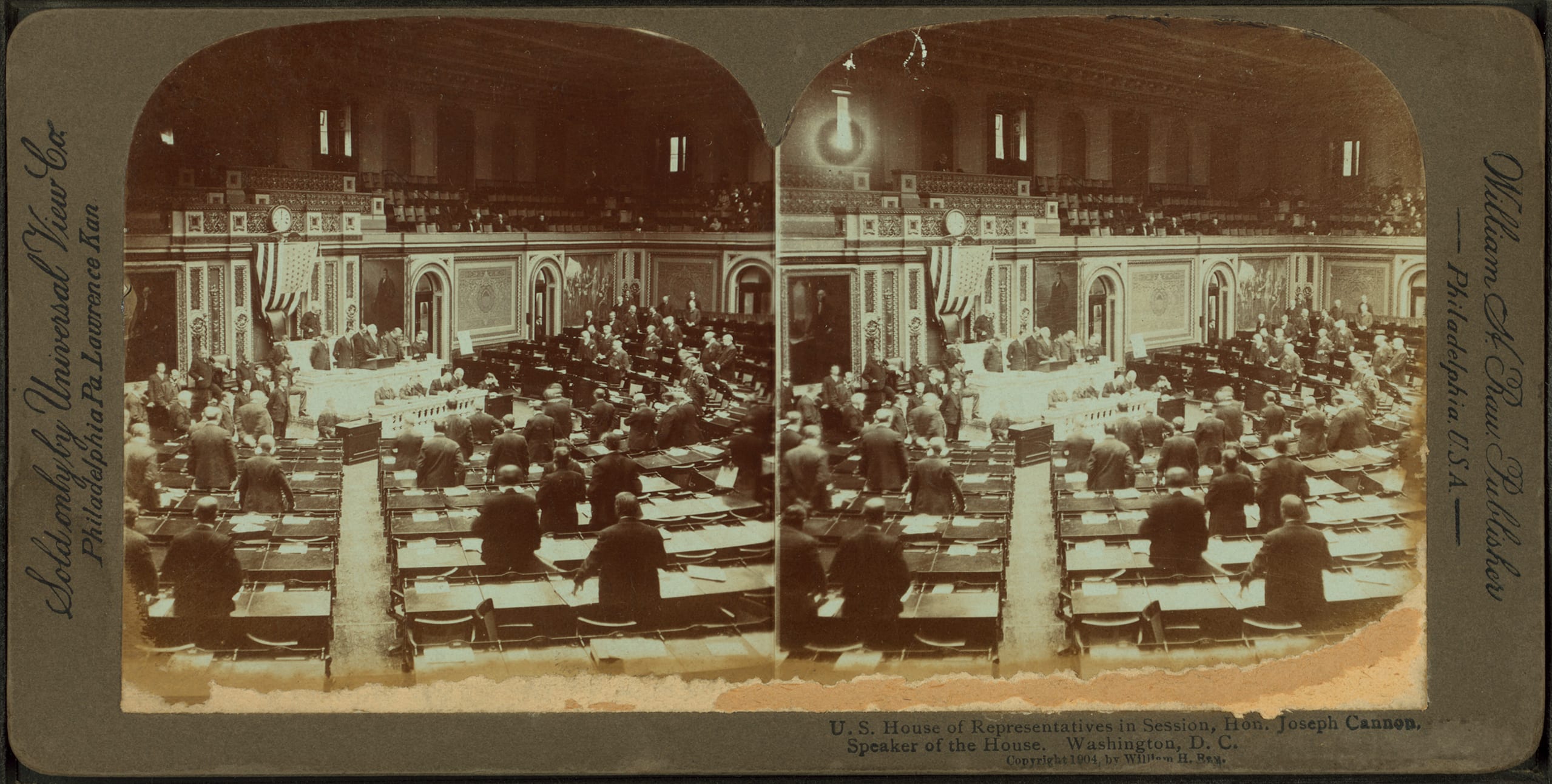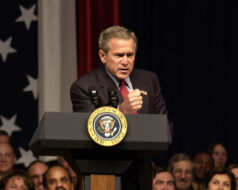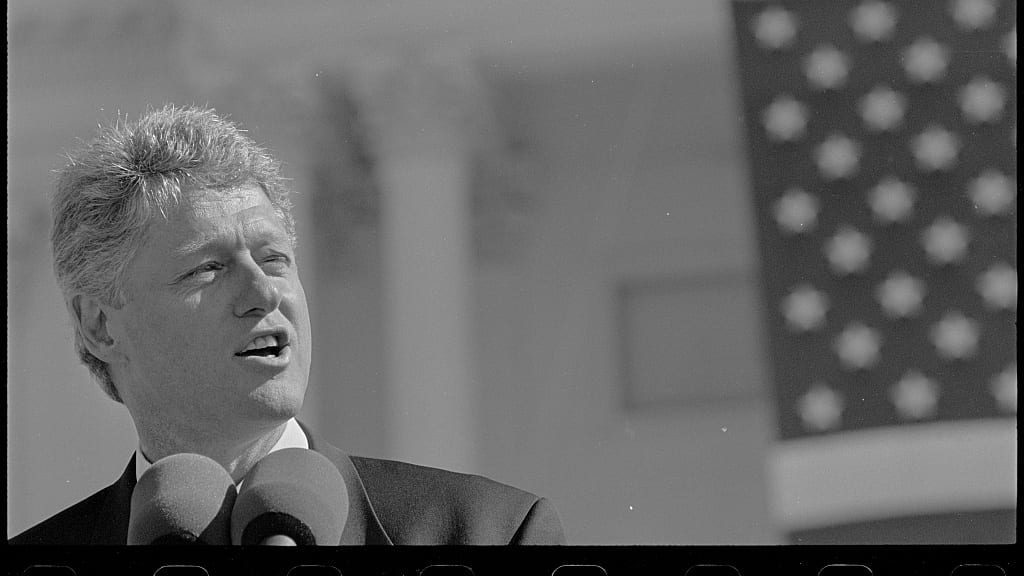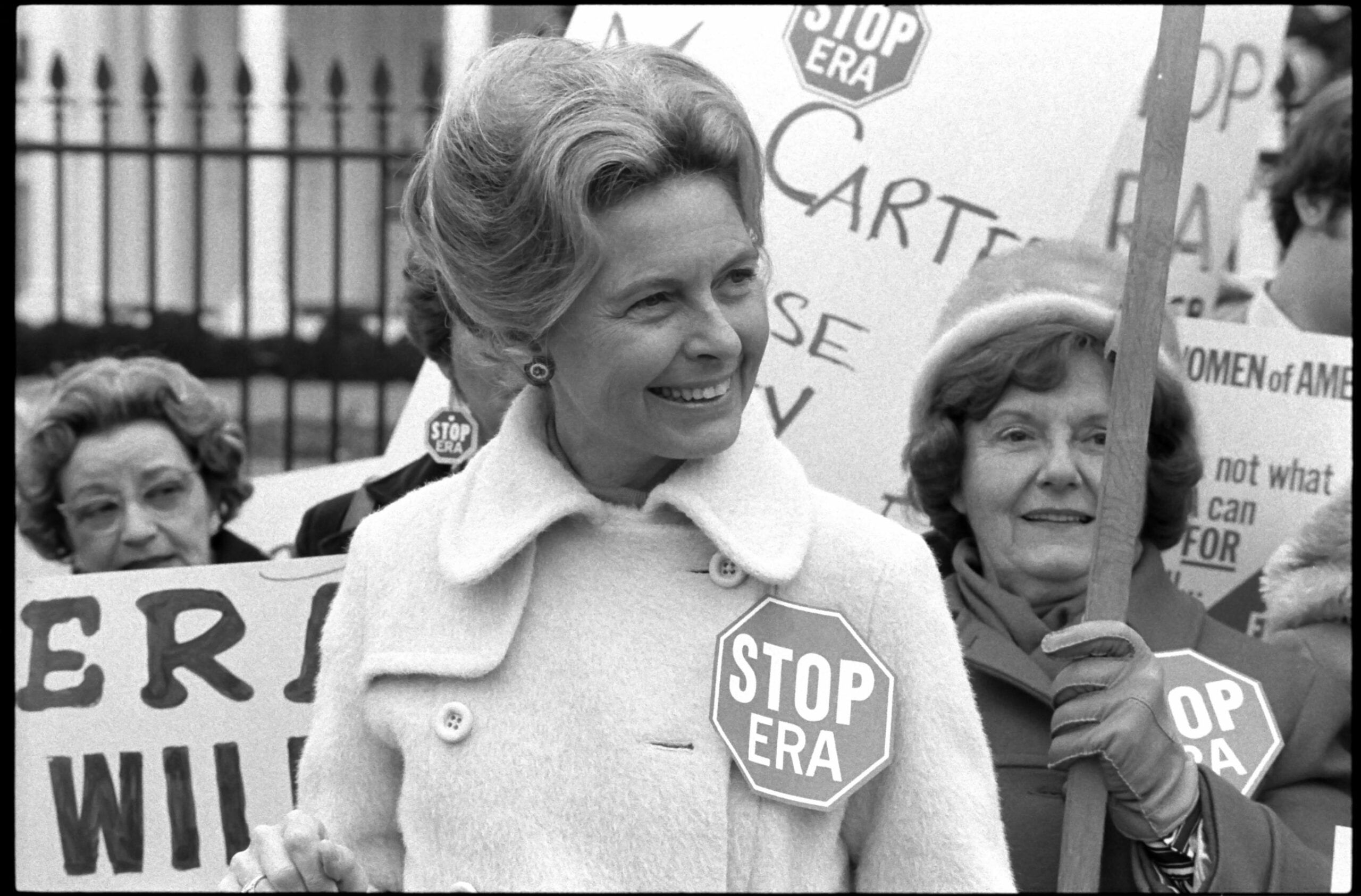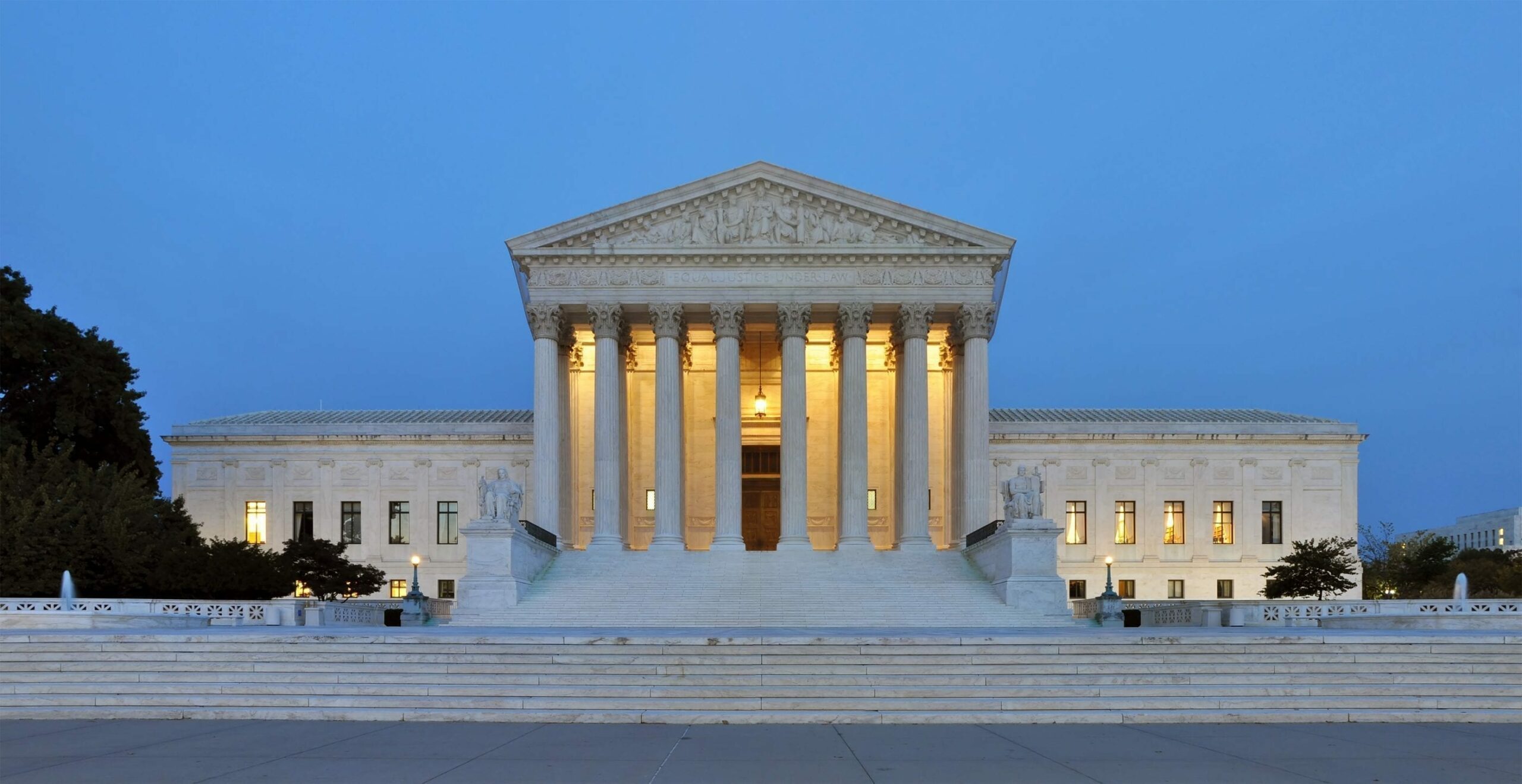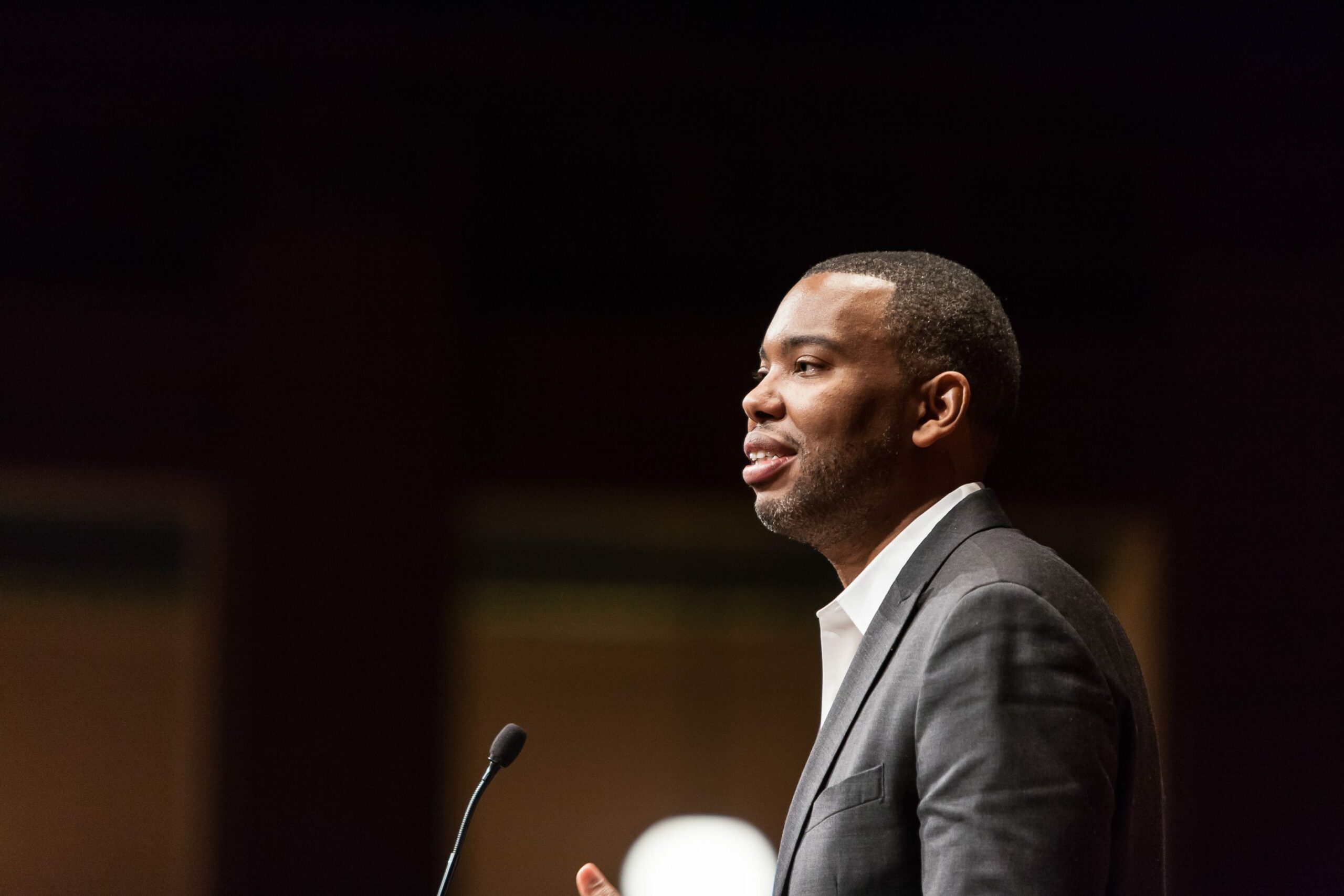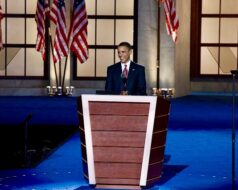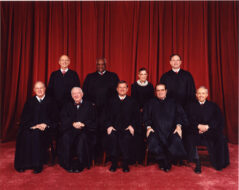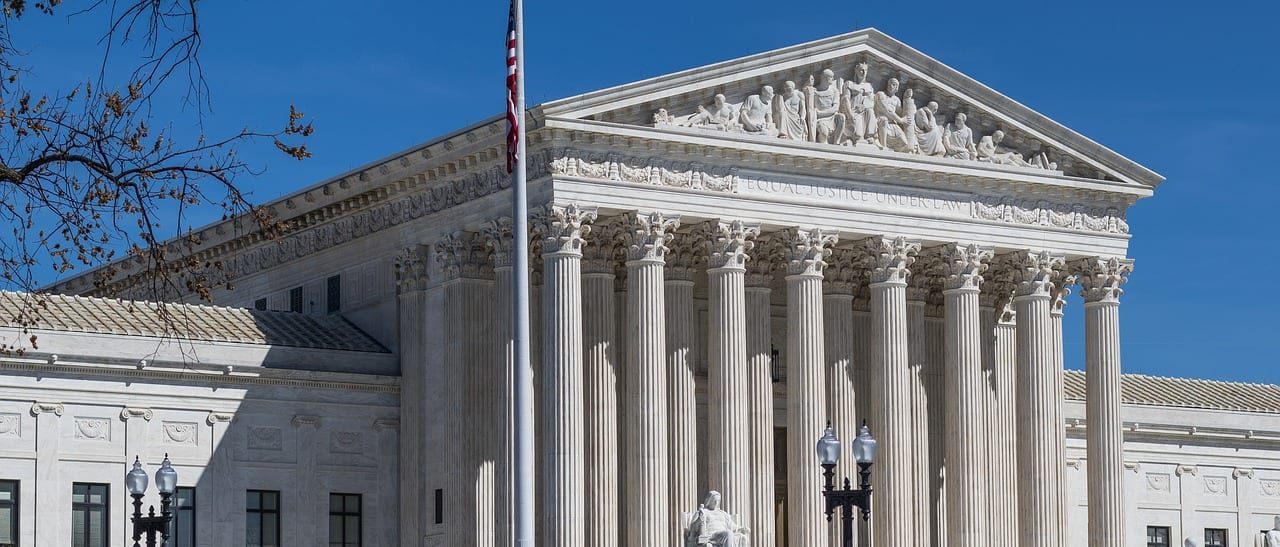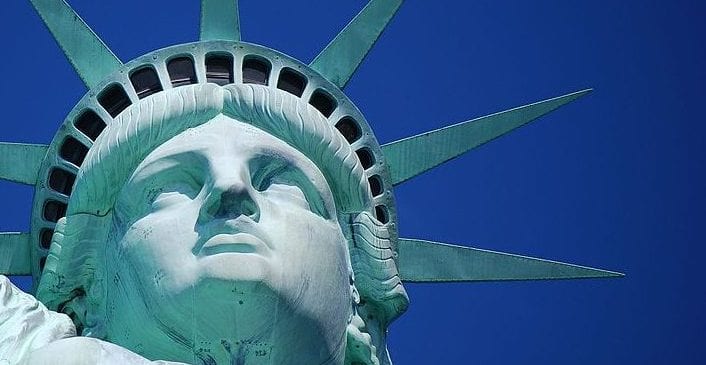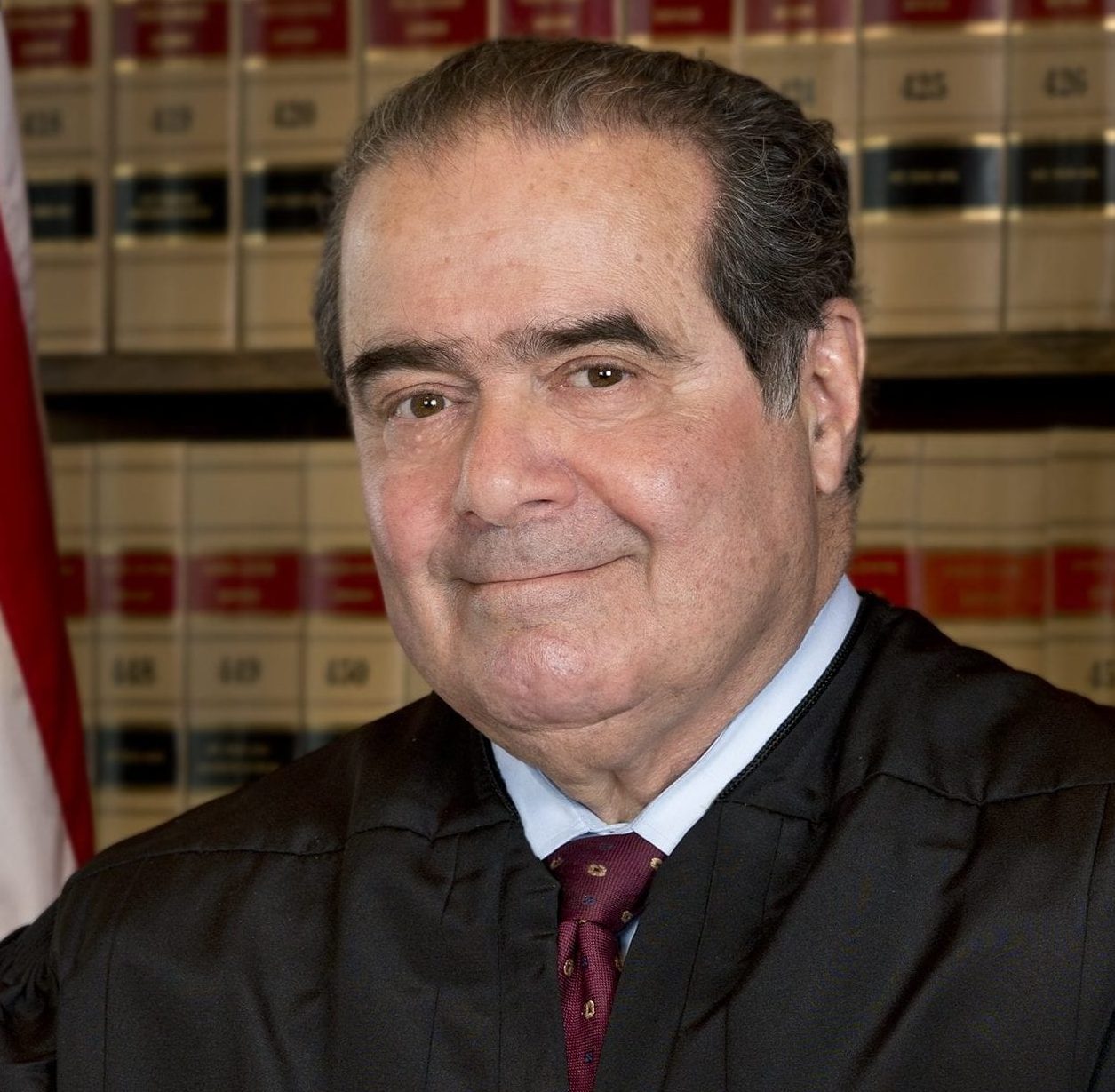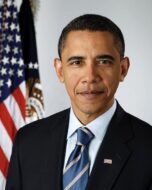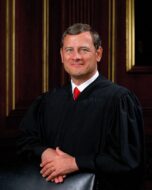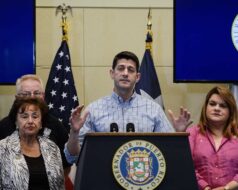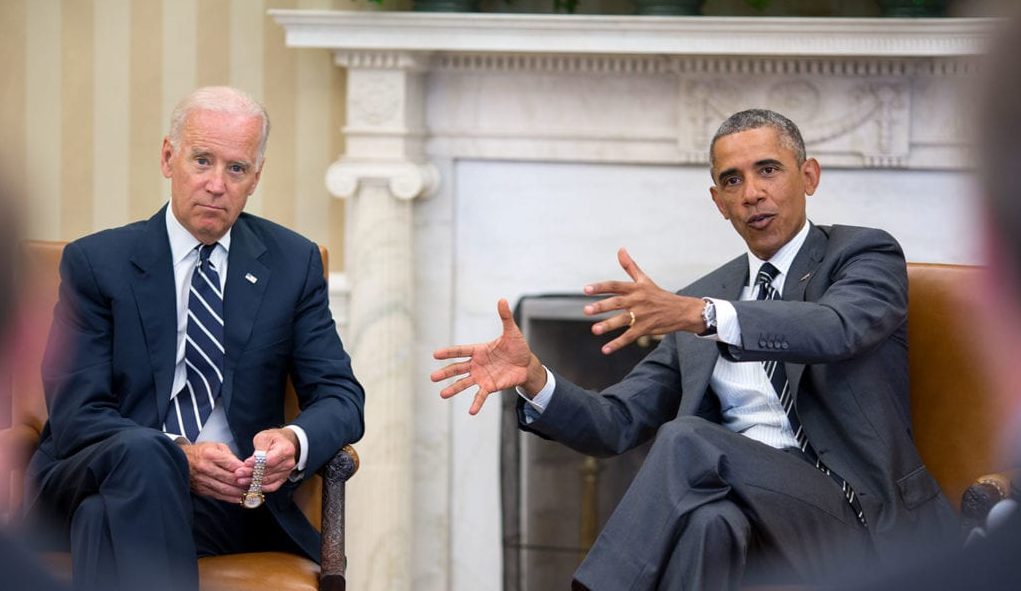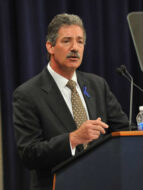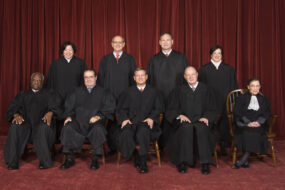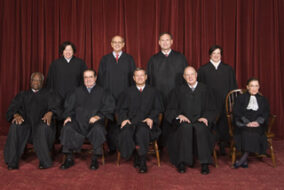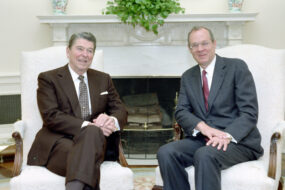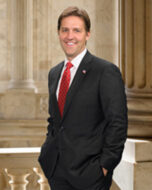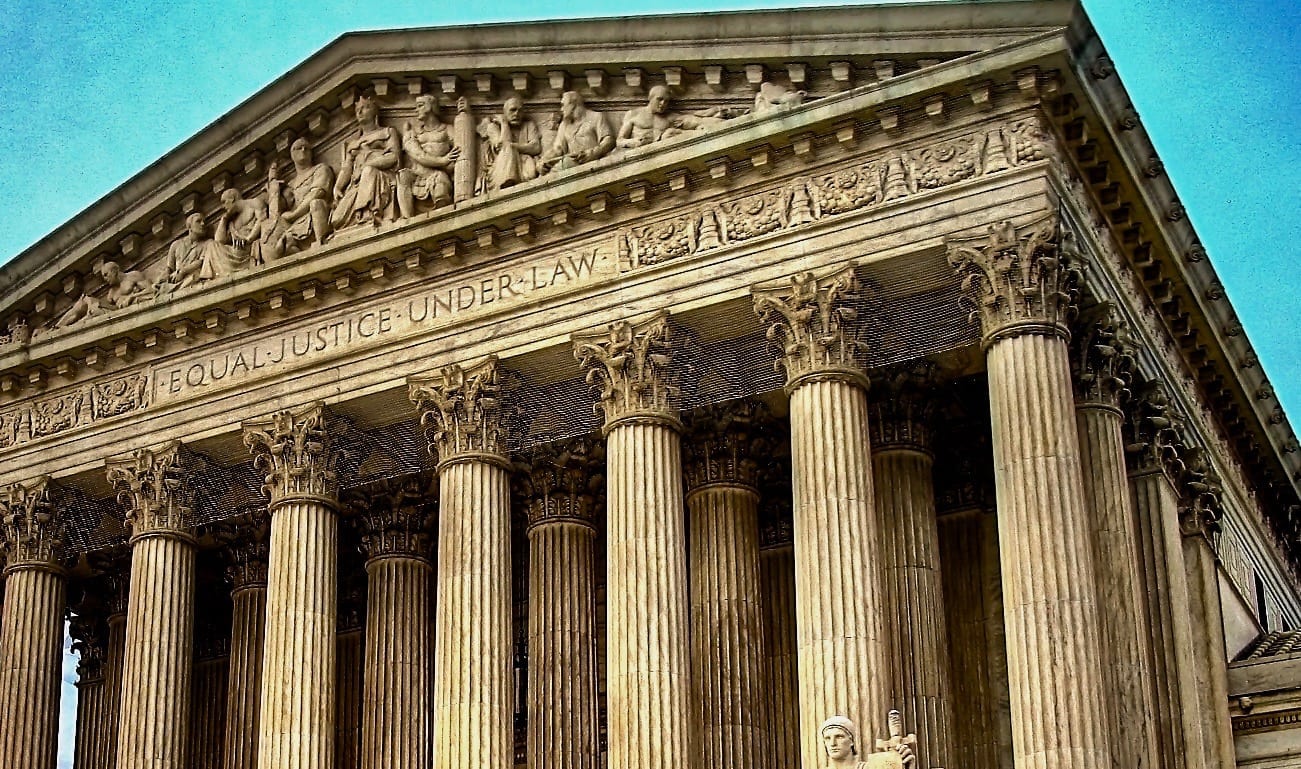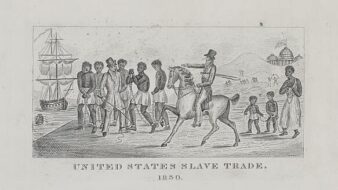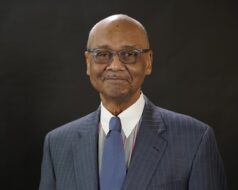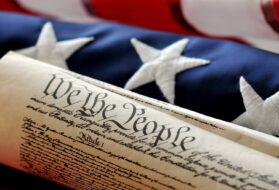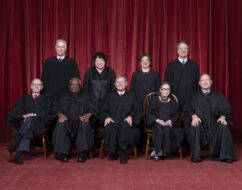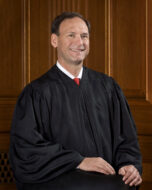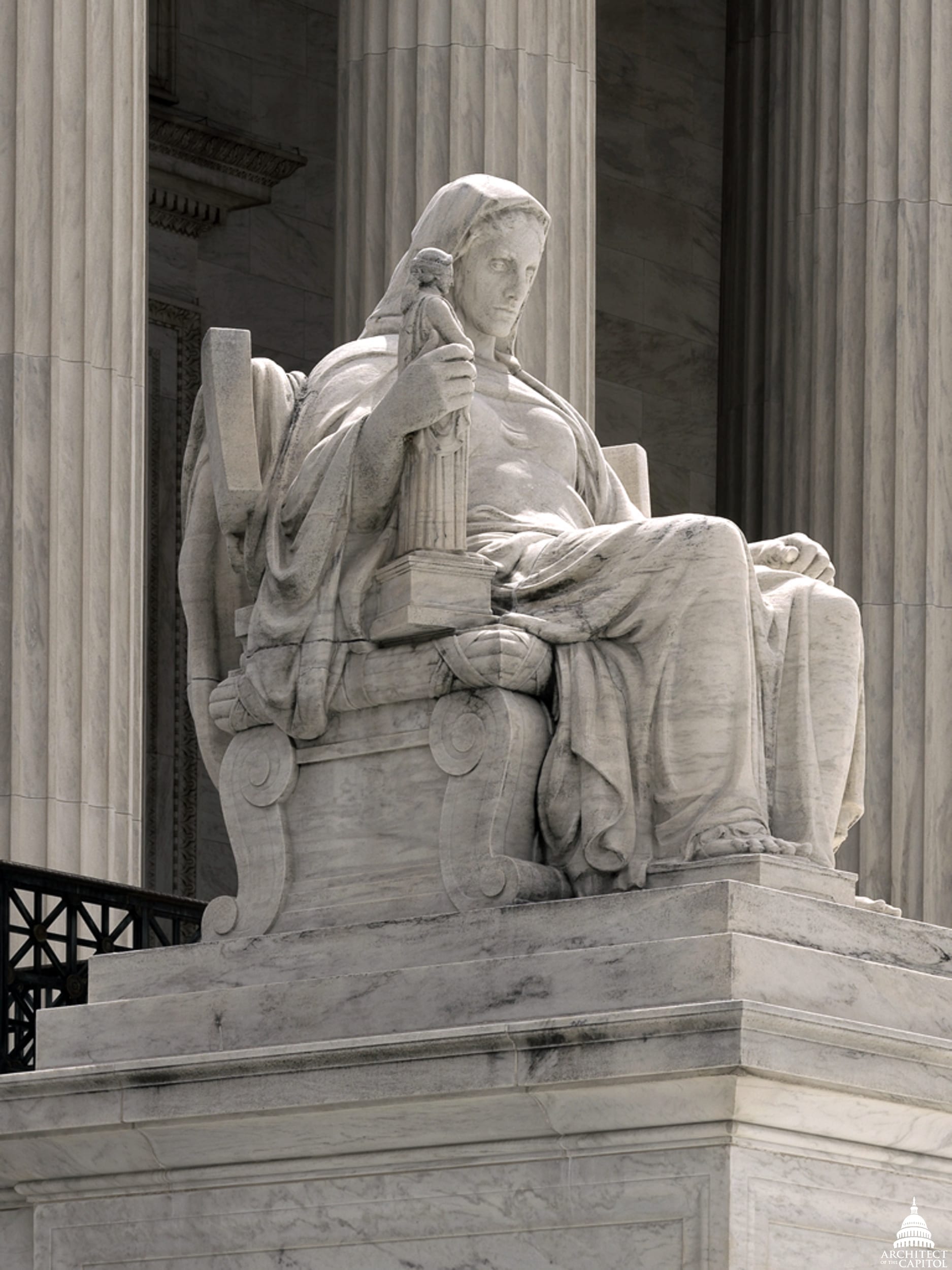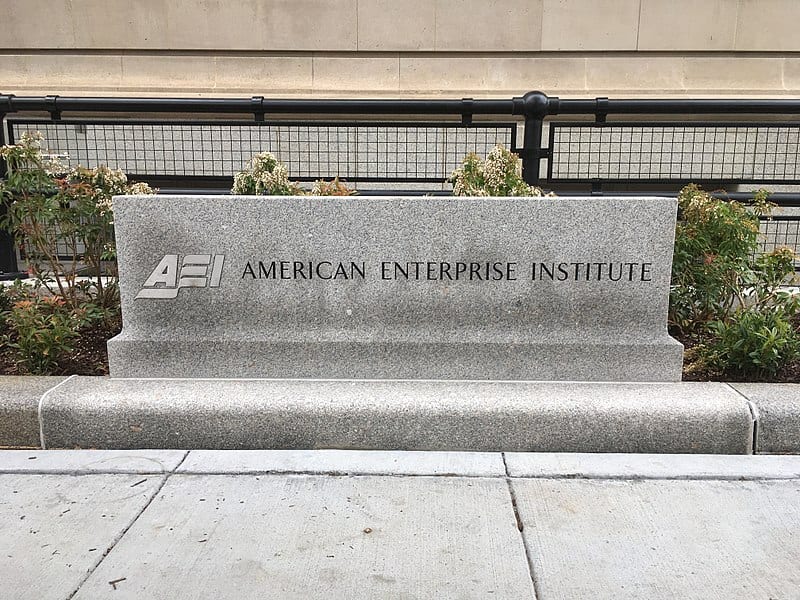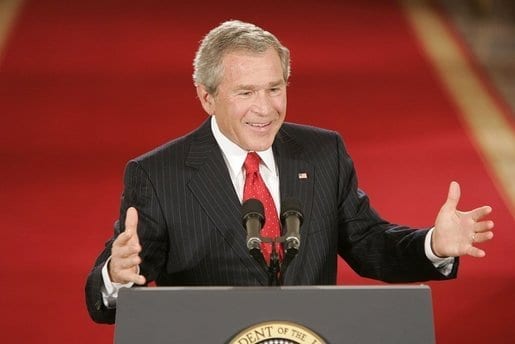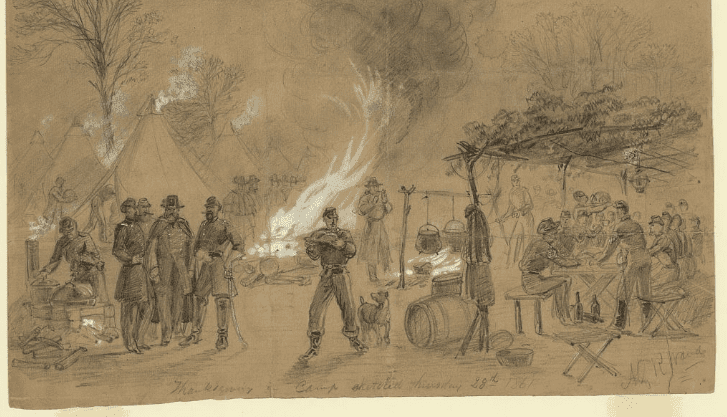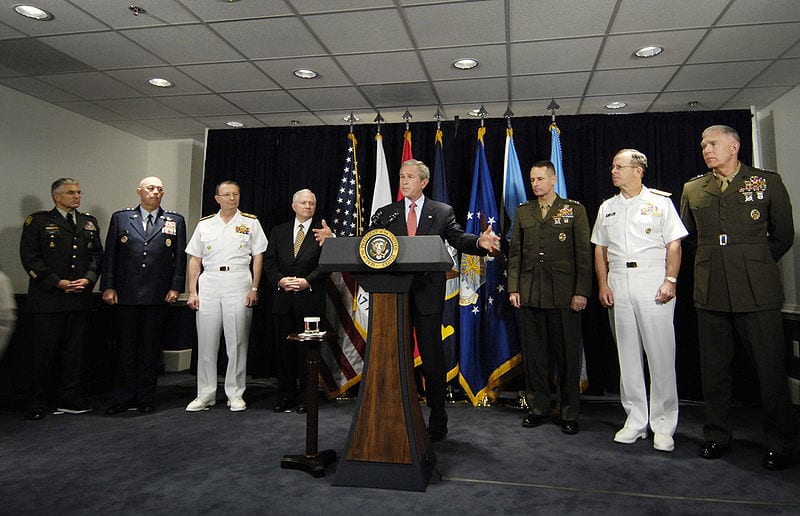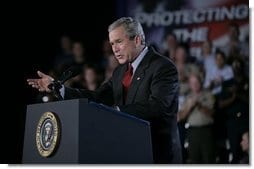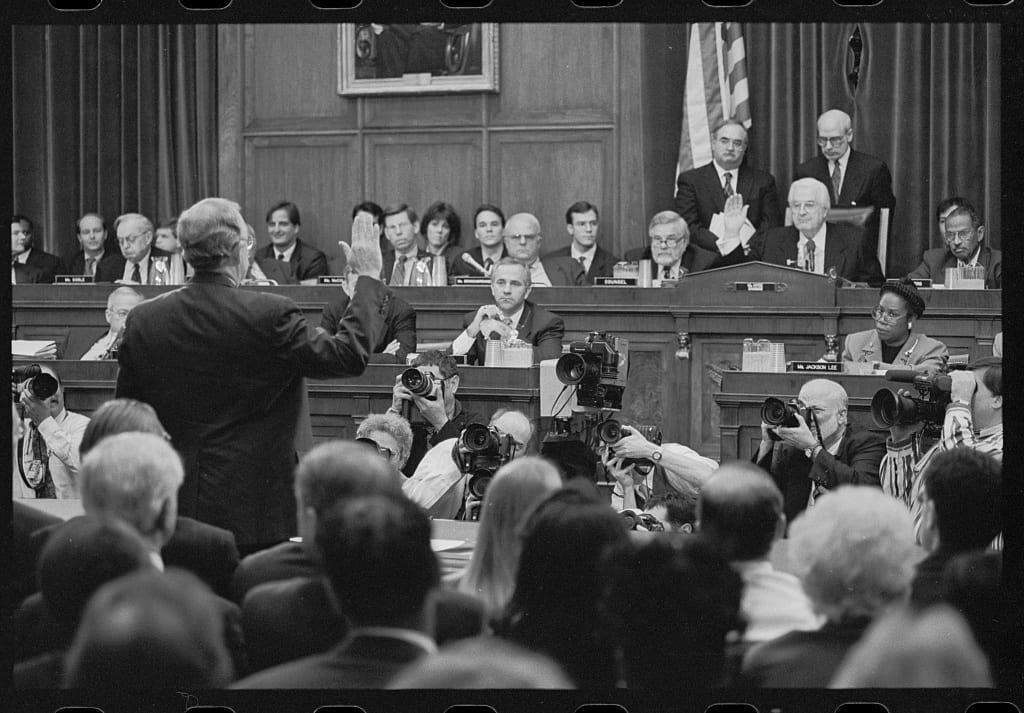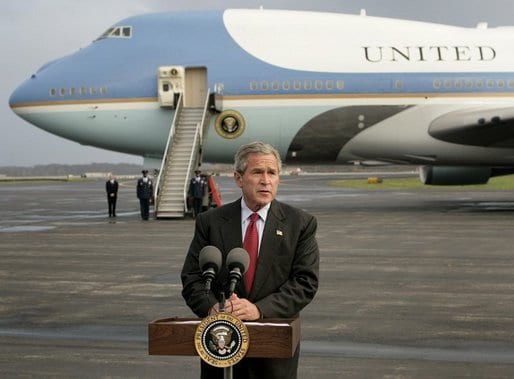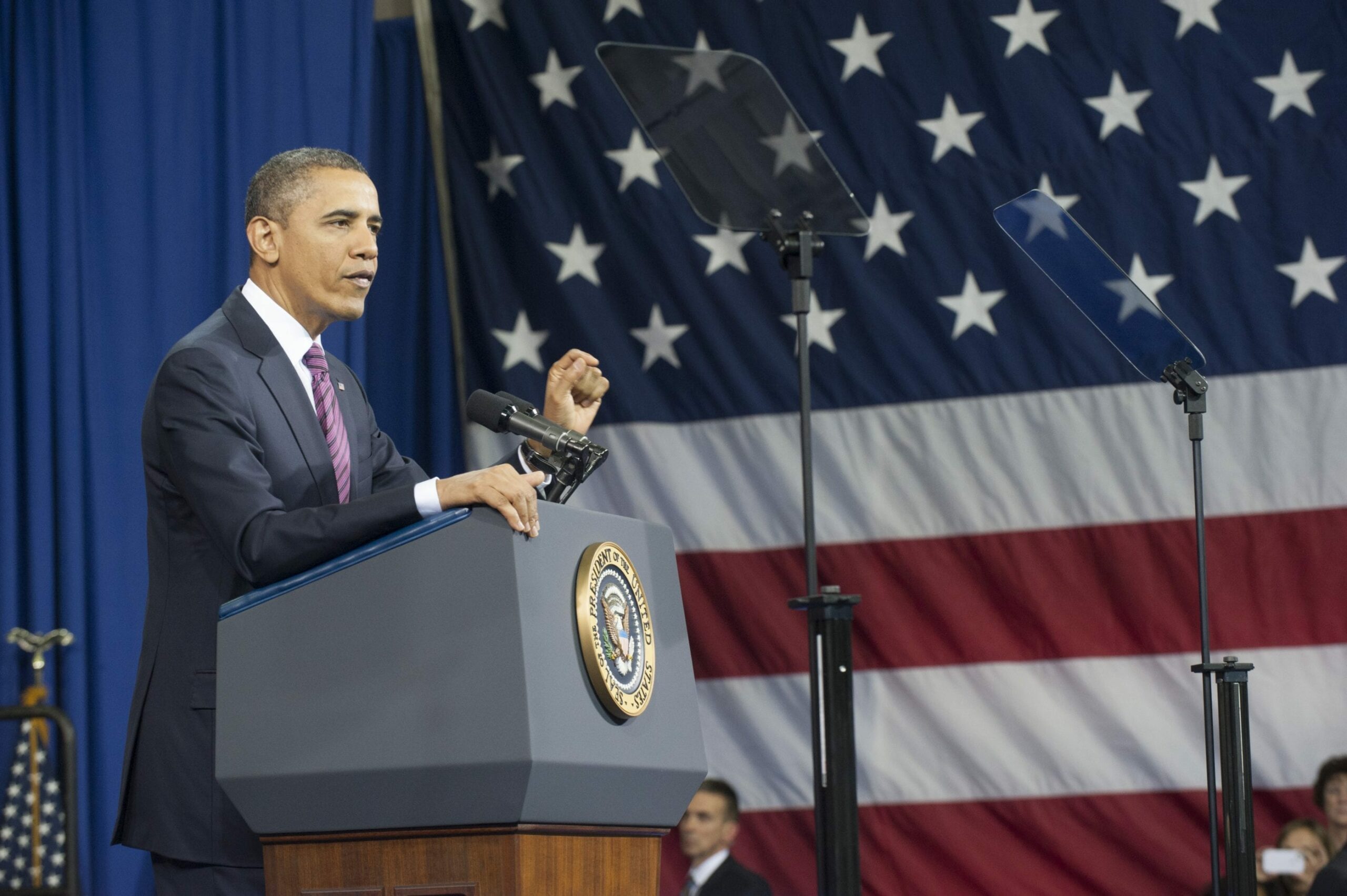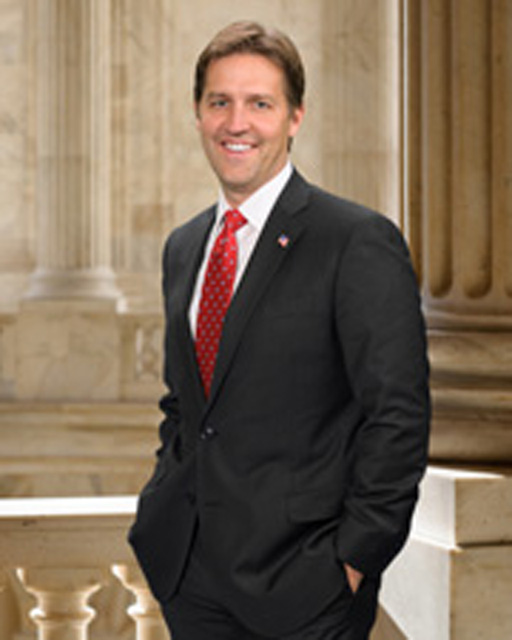
No related resources
Introduction
Sen. Ben Sasse (1972–) was elected to represent Nebraska in the U.S. Senate in 2014, and reelected to a second term in 2020. Prior to serving in the U.S. Senate, he was the president of Midland University in Nebraska. A conservative Republican, Sasse nevertheless voted to convict and remove President Donald Trump during his second impeachment trial in February 2021.
In this speech delivered before Donald Trump won the Republican Party’s nomination for president—or the presidency itself—Senator Sasse lamented the decline of Congress and the rise of an all-powerful executive branch. He noted that partisanship had enabled this to occur by incentivizing members of Congress to hand over power to the executive branch if a member of their party was the president at the time. Sasse called upon the Senate to bring about the older, constitutional balance of power between the branches. Sasse resigned from the Senate in January 2023 to become president of the University of Florida
114th Congress, 1st session, Congressional Record (Bound Edition), vol. 161 (2015), pt. 15, 21458–21460, https://www.govinfo.gov/content/pkg/CRECB-2015-pt15/pdf/CRECB-2015-pt15-Pg21458-2.pdf.
Mr. Sasse. Mr. President, today I would like to propose a thought experiment. Imagine if President Trump has been propelled into the White House with three hundred electoral votes, having won mainly by the force of his personality, by calling BS on this town, and by his promise to “get things done” by acting unilaterally.
The first one hundred days are huge. He signs an order to turn the Peace Corps into stonemasons to build a southern wall. He shutters the Department of Education, and by executive order, he turns the Department of Interior into the classiest oil company the world has ever known.
What happens next? Would those who have stayed silent about executive overreach over the last seven years suddenly find religion? After years of legislative atrophy, would Congress spring into action and remember its supposed power of the purse?
And what about the Republicans? After having raged against a supposedly lawless president, would they suddenly find that they are OK with a strongman president, so long as he is wearing the same color jersey they are? He may be a lawless son-of-a-gun, some would say, but he is our lawless son-of-a-gun. Would the end justify the means?
The way Congress thinks and talks about executive power over the last few years has almost been this sophomoric. It has been based overwhelmingly on the party tag of whoever happens to sit in the Oval Office at any given moment. Republicans, Democrats, us versus them—these are the political trenches, and the no-man’s-land lies somewhere between this chamber and 1600 Pennsylvania Avenue, NW.1 When your highest objective is advancing partisan lines on a map, it is easy to forgive a president who oversteps his authority, so long as he is your guy and the one with authority is in your party.
This senator suggests that this is the entirely wrong way to think about this issue. The problem of a weak Congress—which we are—and the growth of the unchecked executive should be bad news to all of us. But more importantly than us, this should be bad news for every constituent who casts their votes for us under the impression that the Congress actually makes decisions and doesn’t just offer whiny suggestions.
The shrinking of the legislature in the age of Obama should be bad news for all of us for three reasons. First, we have taken an oath to defend the Constitution, and the Constitution invests the legislature with the legislative powers.
Second, the Founders’ design of checks and balances actually was and is a good idea. They were struggling to preserve the freedom of the individual and especially of the vulnerable against the powerful—against those who could afford to hire the well-connected lobbyists. The Founders were equally afraid of the unchecked consolidation of power in a king or in the passions of a mob. They understood that human nature means that those in power will almost always try to grab more power, and that base reality hasn’t changed over the last 230 years.
Third, under the system that is now emerging, the public is growing more and more frustrated. They think that most of us will be reelected no matter what, and they think that the executive agencies that daily substitute rulemaking for legislating will promulgate whatever rules they want, no matter what, and that the people have no control. People grow more cynical in a world where the legislators who can be fired—that is what elections are for—have little actual power and a world where bureaucrats, who have most of the actual power, cannot be fired. It is basically impossible for the people who are supposed to be in charge of our system to figure out how they would throw the bums out. They ask: Where is the accountability in the present arrangement?
Allow me to be clear about two issues up front. First, this senator believes that the weakness of the Congress is not just undesirable; it is actually dangerous for America and her future. Second, this senator thinks so not because I am a Republican and we have a Democrat in the White House; rather, I think this because of my oath of office to a constitutional system, and I will continue to hold this view, having taken this oath, the next time a Republican president tries to reach beyond his or her constitutional powers. Despite these two strongly held views, though, in this series of addresses on the growth of the administrative state2 and more broadly on the unbalanced nature of executive and legislative branch relations in our time, my goal will not be primarily to advocate. My first goal is just to do some history together.
My goal is primarily to describe how the executive branch has grown and how presidents of both parties are guilty of it. But it isn’t just that Republicans and Democrats are guilty of trying to consolidate more power when they have the presidency, although that is true; it is a one-way ratchet. It is also true that Republicans and Democrats are to blame in this Congress for not wanting to lead on hard issues and take hard votes, but rather to sit back and let successive presidents gobble up more authorities.
My goal is to give all of us who are called to serve in this body a shared sense of some historical moments, how we got to this place where so much of the legislative function now happens inside the executive branch, and to convince my colleagues of both parties that we have to take this power back, regardless of who serves in the White House and what party they are from.
So how did we get to the place where so many giant legislative decisions are now made inside 1600 Pennsylvania Avenue and in the dozens of alphabet soup agencies? To understand that, we have to look briefly at the Founders and what they were trying to accomplish. These were educated men who had studied all forms of government throughout human history. They had a worked-out theory of human nature. They knew that we are created with inherent dignity worthy of respect, that our rights come to us from God via nature, and that government doesn’t give us rights; government is just our shared tool to secure those natural rights. At the same time they knew that we also have a disposition to self-interest and a capacity for evil. They observed it throughout all of human history, rulers trying to consolidate more power for their own ends, and this is obviously dangerous.
One of the lessons they drew from their rich historical understanding was the importance of keeping three main functions of government separate. As Montesquieu wrote: “All would be lost if the same man or the same body of principal men, either of the nobles or of the masses, exercised these three powers: that of making the laws, that of executing public resolutions, and that of judging the crimes and disputes among individuals.”3
The separation of powers could not, of course, be absolute, for the branches had to work together, each power had to counterpose one another. The key was to divide the power among different institutions while ensuring that those institutions could act together as a coherent whole on the basis of what they call “mixed government.”
The Constitution that emerged from the Founders’ debates and deliberations intentionally enshrines the separation of the powers, and this was a direct result of the Founders’ study of human nature and their conclusion that that nature was relatively constant. Men everywhere tend to aggrandize power and to use it for selfish ends. When power checks power in the government, the people are better protected. . . .
About one hundred years ago, this idea and our system of separation of powers came under attack. There are three or four large reasons why the era of urbanization, industrialization, and then progressivism and the rise of specialized experts called our constitutional system of limited government into question. We will tackle some of those topics after the holidays. But for now, it is sufficient to say that the presidency began to grow larger in the first two decades of the twentieth century, and the Congress began to lose some of its powers.
It happened because presidents of both parties were willing to overreach and because the Congress was willing to underreach, to retreat from that field of competitive ideas, to retreat from our constitutional commitments.
For every TR—Teddy Roosevelt, a Republican—there is an FDR, a Democrat. This should not be a partisan issue, for both sides have been guilty of extensive executive branch overreach. Meanwhile, the professional legislators realized that permanent incumbency is easier if you cede control rather than lead, if you decide not to take the hard votes but just quietly ask the executive branch to make the decisions unilaterally.
Today many in my party argue that no president has ever even contemplated what President Obama regularly does. That is actually not true. Whatever one might think of President Obama’s gobbling up of powers, his theories are not at all new. His theories date back to the Progressive Era’s disdain for limits of the Constitution, and this is especially evident in the self-conscious executive expansionism of Teddy Roosevelt, the Republican, and Woodrow Wilson the Democrat.
After the holidays, we are going to spend a little time exploring both of these men and their attempts to marginalize and to intentionally ignore the Congress to—as TR put it—”greatly broaden the use of executive power.”. . .
It would be far more useful in this body—not to mention far more believable to the people who we work for—for us to learn to talk openly about how and why this once powerful and still special body became so weak. Congress is mocked, and we should tackle the hows and whys, for the people are not wrong. We should stop this trend, and the first step toward that would be to better understand and to more openly admit the nature of the problem.
I planned this series on the growth of the executive branch for early in 2016 because it would be healthy for the Senate and for our broader public to be wrestling with the duties and constitutional authorities in advance of November’s presidential elections before we will know which party will win. We need to have this conversation now precisely because we don’t know which party will win.
Let me be realistic for a minute. I hope it is not pessimistic, but I will be realistic. I actually don’t think there is much will in this body to do things like recovering the power of the purse. And even if there were, the will to get beyond R’s and D’s, shirts and skins Kabuki theater, as we drift toward a parliamentary system with “winners take all” in the executive branch—the actual act of trying to recover power, the power of the purse and the legislative powers that the Constitution vests in this body—would be very difficult at a time when the public is so cynical and so disengaged because of how dysfunctional this institution is.
I think that the Democrats are likely only to recover a sense of their Article I powers if they are looking at a President Trump or a President X or a President Y or whoever the scariest candidate might be to the Democrats.
Similarly, I think the Republicans are most likely prone to forget most of their concerns about executive overreach if a Republican does defeat Secretary Clinton in November.
I will just end with two brief stories. In the first, FDR was frustrated with the Supreme Court, so he had a solution. He would just pack the Court. Who could stop him? He had control of the Congress, after all.
Well, someone did stop him—Senate Democrats who cared about the Constitution and their oath stepped up.
In one of the other great instances of this place just saying no, regardless of party, LBJ—arguably the most powerful leader until the last ten years in the history of the Senate, the most powerful leader this place had ever known in his age—became VP and said he would essentially remain majority leader of the Senate at the same time. Again, it was Democrats in this body who said no based on their constitutional responsibilities, not their partisanship. These were men and women who cared more about their country and more about their Constitution and more about their oaths than their party.
I think that all of us in both parties should look to those examples and again be talking in the future about how we emulate them and recover the responsibilities of this body
- 1. The address of the White House.
- 2. The term ”administrative state” denotes the vast array of administrative agencies that make, enforce, and adjudicate most of the policies in the national government.
- 3. Charles-Louis de Secondat, Baron de La Brède et de Montesquieu (1689–1755), Spirit of the Laws, book XI, ch. 6. Montesquieu articulated a theory of the separation of governmental powers that was influential during the American founding.
Matal v. Tam
June 19, 2017
Conversation-based seminars for collegial PD, one-day and multi-day seminars, graduate credit seminars (MA degree), online and in-person.

